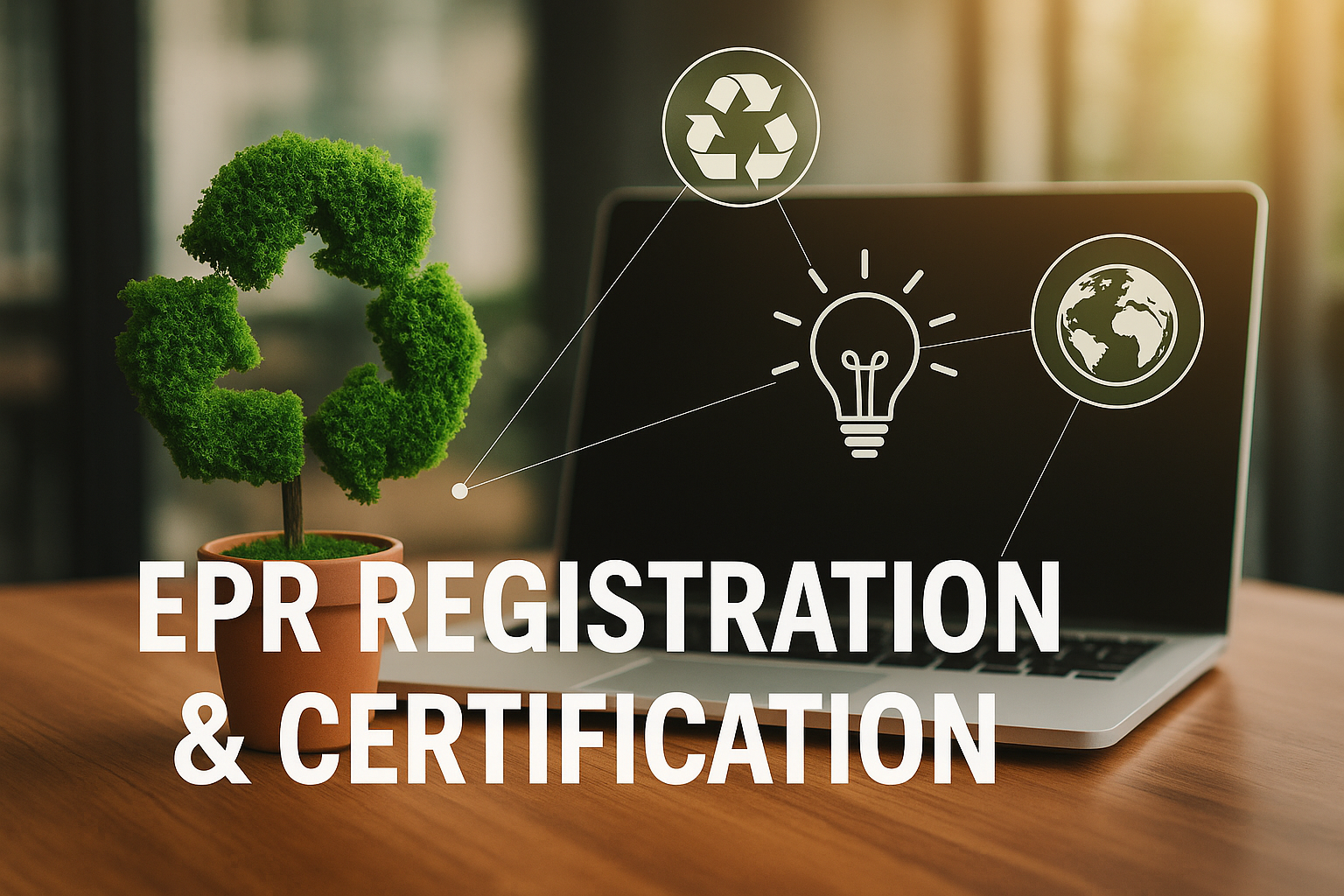In today’s business climate, sustainability is no longer a voluntary commitment. It is an operational reality, a regulatory necessity, and, more importantly, a strategic differentiator. Within this new landscape, EPR registration and EPR certification have emerged not only as tools for environmental compliance but as frameworks for building resilient, forward-looking businesses.
While most companies still approach Extended Producer Responsibility as an obligatory legal process, the real opportunity lies in treating EPR as a system. A system that integrates operations, supply chains, and corporate ethics in a way that scales with growth, aligns with global ESG goals, and opens up new pathways to credibility and investment.
Moving Beyond Documentation: EPR as Infrastructure
For many producers, importers, and brand owners, EPR registration is seen as paperwork. A compliance checklist. A license to operate. This limited view often leads to fragmented execution and last-minute panic when CPCB audits or SPCB verifications come into play.
However, companies that build internal EPR systems early do not just stay compliant. They create digital infrastructure, data visibility, and waste tracking models that improve logistics, procurement planning, and customer transparency. They avoid reactive compliance and instead develop proactive intelligence about the materials they release into the environment.
This ability to track, report, and optimize post-consumer waste is no longer a regulatory burden. It is a business advantage.
Waste as a Feedback Loop
One of the most overlooked benefits of structured EPR certification is the feedback loop it creates. Companies that manage their end-of-life waste through certified recyclers or producer responsibility organizations begin to learn from the data.
They learn which materials are most difficult to recover. They identify packaging choices that create inefficiencies in collection and processing. They discover opportunities to use recycled content and lower their product’s life-cycle emissions.
Over time, this creates design intelligence. Packaging becomes smarter. Distribution systems evolve to include reverse logistics. Materials once seen as waste begin to re-enter supply chains as resources. This is how EPR shifts from being a legal requirement to a business transformation engine.
Positioning for the Future of Trade and Investment
The global marketplace is evolving. Investors are applying ESG filters to their portfolios. Export markets are tightening rules around producer responsibility and recycled content. Governments are linking environmental compliance to incentives and procurement eligibility.
Having a verified EPR registration is not just a domestic requirement anymore. It becomes proof of responsible operations. It shows readiness to participate in international supply chains that demand traceability, ethical sourcing, and circular economy models.
In this context, EPR certification acts as a badge of maturity. It signals to stakeholders that the business is not only compliant but prepared for the future.
EPR Is Not Just for Big Corporations
Another common misconception is that EPR is only relevant for large manufacturers or MNCs. In reality, every brand that sells packaged products, every importer that introduces plastic or electronic goods into the Indian market, and every local distributor is subject to these rules.
The difference lies in execution. Startups and SMEs that embed EPR into their systems early find it easier to scale operations later. They avoid disruptions during funding, audits, or expansion because they already have the systems in place.
This is not just good governance. It is smart business planning.
Conclusion: EPR as a Foundation, Not a Form
When approached correctly, EPR certification is not a cost. It is a foundation. A foundation for better business decisions, stronger brand reputation, and long-term sustainability. It is the start of a system that connects compliance with competitiveness.
As industries continue to evolve, the businesses that build early, transparent, and scalable systems around their environmental responsibilities will lead the way. Not just because they have to. But because it makes sense.
If your business is ready to turn responsibility into opportunity, now is the time to start.






Leave A Comment